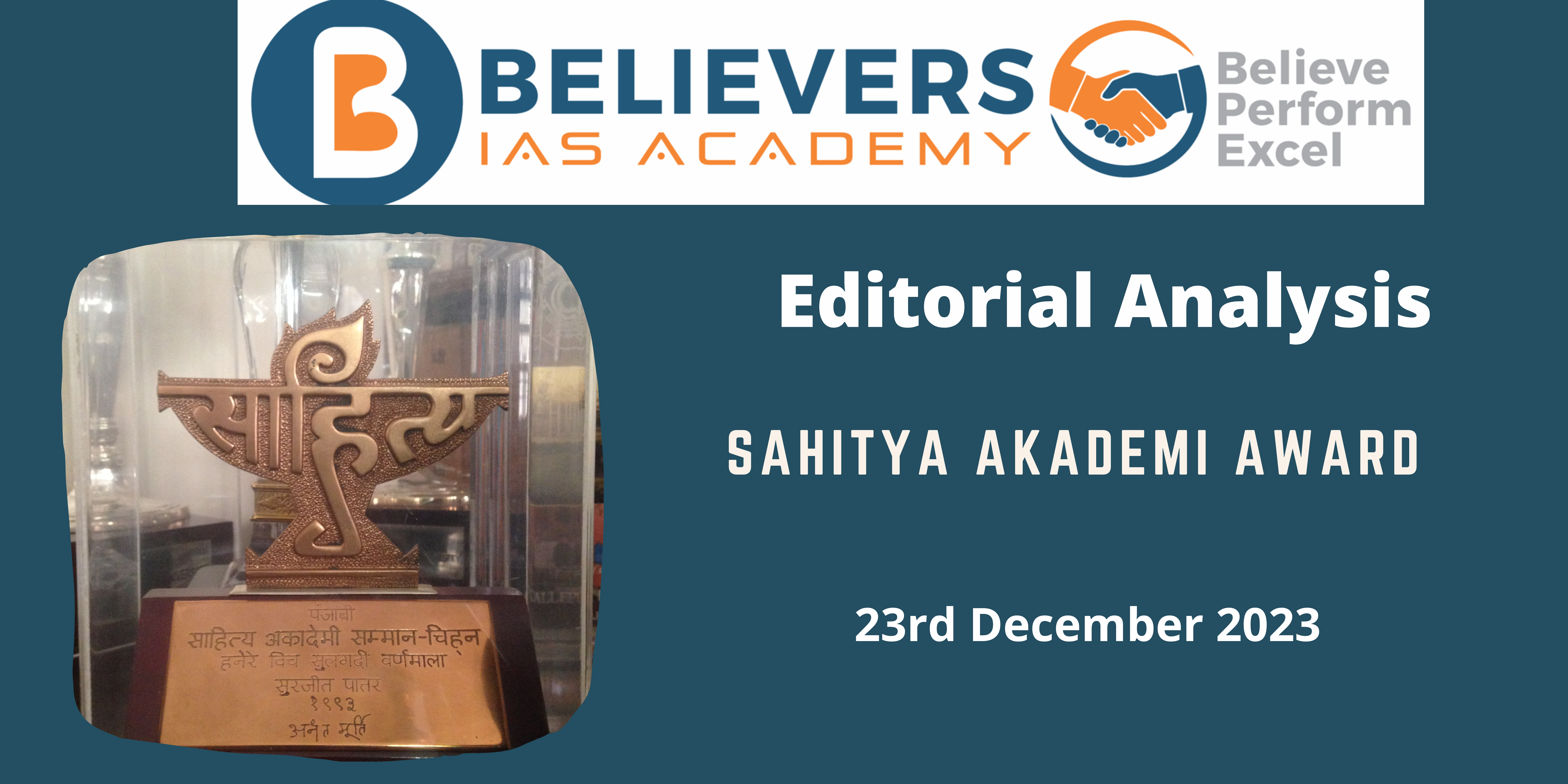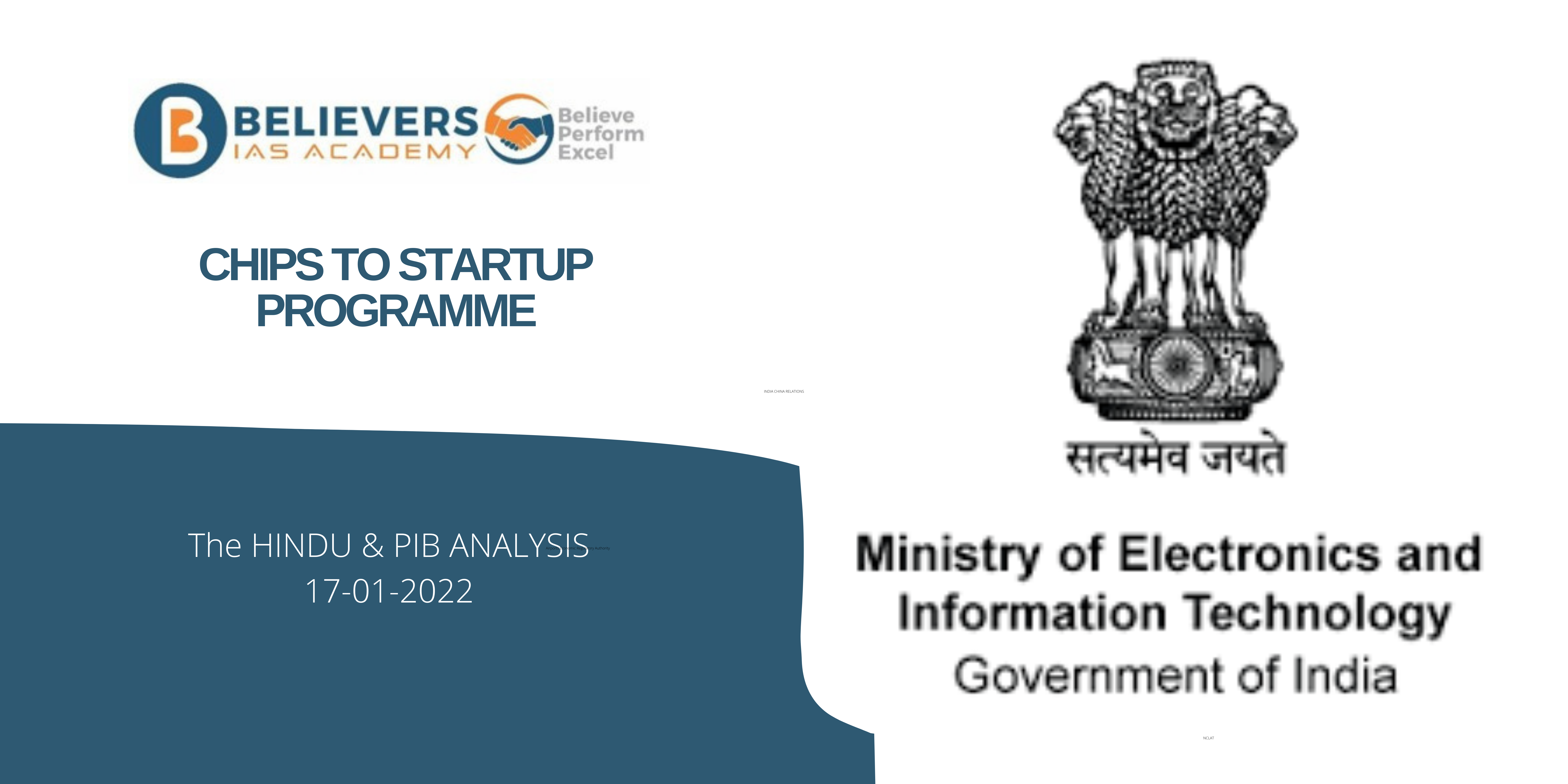Sahitya Akademi award
Context:
The need for the Sahitya Akademi to enhance its efforts in promoting Indian literature and acknowledging the significance of literary diversity in a country with numerous languages and dialects.
Relevance:
GS-01 (Indian culture)
Sahitya Akademi award:
- Established in 1954, the Sahitya Akademi Award is an annual literary honor presented by Sahitya Akademi, India’s National Academy of Letters.
- Recognizing literary excellence, the award spans various languages, including English and Rajasthani, beyond the 22 languages mentioned in the Constitution of India.
- It holds the distinction of being the second-highest literary honor conferred by the Government of India, following the Jnanpith Award.
Criteria for Selection:
- The author must be an Indian National.
- The eligible work should be an exceptional contribution to its respective language and literature.
- In cases of equal merit among competing works, additional considerations such as the author’s overall literary contributions and standing are taken into account.
Other Sahitya Akademi Awards:
- Sahitya Akademi Bal Sahitya Puraskar: Recognizing outstanding contributions to children’s literature, this award is based on an author’s total body of work published in the five years preceding the award year.
- Sahitya Akademi Yuva Puraskar: Awarded to authors aged 35 and below, this category focuses on books published by young literary talents.
Dimensions of the Article:
- Linguistic Diversity in Awards
- Potential Impact of Awards
- Underutilized Recognition
- Need for Effective Promotion
- Challenges in Access to Publications
- Call for Increased Literary Promotion
Linguistic Diversity in Awards:
- The Sahitya Akademi awards celebrate writers in 24 Indian languages, encompassing diverse literary forms such as poetry, novels, short stories, essays, and literary studies.
- This linguistic diversity is crucial in a country where dialects change frequently, and numerous marginalized communities and languages face the risk of extinction.
Potential Impact of Awards:
- Sahitya Akademi awards serve as encouragement for writers, providing recognition that goes beyond the ability to generate public relations hype.
- Winning such an award can lead to increased book sales, inclusion in educational curricula, and exposure in schools and universities.
- The awards open avenues for translation, enabling stories to reach audiences in other regional languages and even in English.
Underutilized Recognition:
- Despite being established in 1954 with the goal of being a central institution for literary dialogue, publication, and promotion, Sahitya Akademi awards lack the prominent recognition seen in international awards like the Booker Prize or the Pulitzer.
- It is criticized for the insufficient promotion and outreach efforts of the Akademi, with its programs, including lectures, readings, discussions, and workshops, not gaining enough visibility.
Need for Effective Promotion:
- The Sahitya Akademi’s online presence, including its website and social media platforms, is deemed inadequate and poorly managed.
- It suggests that the Akademi needs to improve its promotional strategies, especially in the digital age where online engagement can significantly contribute to spreading awareness about India’s literary traditions.
Challenges in Access to Publications:
- While the Sahitya Akademi has published thousands of books, the article points out that these publications, although affordable, are not easily accessible.
- In a time when digital screens dominate, particularly among children, the Sahitya Akademi is urged to take more active measures to make its publications readily available.
Call for Increased Literary Promotion:
- Emphasizing the importance of preserving reading habits, especially among children, the article calls for the Sahitya Akademi to leverage its extensive network for more significant efforts in promoting India’s rich literary tradition.
- The Akademi is encouraged to play a more active role in fostering a love for literature, particularly among the younger generation.




